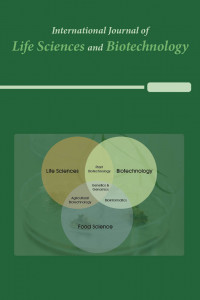An In-silico approaches for identification of potential natural antiviral drug candidates against Erythrocytic necrosis virus (Iridovirus) by targeting Major capsid protein: A Quantum mechanics calculations approach
Abstract
A member of the Iridoviridae family has been detected as the erythrocytic necrosis virus (ENV), which causes viral erythrocytic necrosis (VEN) in 20 marine and anadromous fishes. The major capsid protein (MCP) is the main structural protein of iridoviruses and is responsible for causing disease in various fishes. It has been found that the VEN utilizes major capsid protein (MCP) to enter into the host cell and blocking the virus entry by targeting the protein can reduce the economic losses caused by the pathogen. The main objective of the study was to evaluate the inhibitory potentiality of 48 compounds Allium sativum is one of the medicinal plants which has been reported to show potential antiviral activity against various pathogens, but activity against the capsid protein promoted pathogens has not yet been reported. The MCP was retrieved, modeled, refined, and validated in this experiment. The binding affinity of 48 compounds was calculated against the MCP with the docking, ADMET, and molecular dynamics (MD) simulation approaches which predict PubChem CID 12303662 inhibitory compound that binds strongly with the major capsid protein with a binding affinity of -9.7 after optimization. For theoretical calculation, the HOMO-LUMO gap score was also calculated. The best ADMET compounds were selected for the optimization analysis and re-docking. As a result of the research, it is possible to deduce that these Allium sativum phytochemicals might act as significant inhibitors of the MCP. More in-vitro testing is needed to establish their effectiveness.
Keywords
References
- 1. Tidona, C.A., et al., Is the Major Capsid Protein of Iridoviruses a Suitable Target for the Study of Viral Evolution? Virus Genes, 1998. 16(1): p. 59-66. 2. Lin, H.-Y., et al., Development and application of a monoclonal antibody against grouper iridovirus (GIV) major capsid protein. Journal of Virological Methods, 2014. 205: p. 31-37.
Abstract
References
- 1. Tidona, C.A., et al., Is the Major Capsid Protein of Iridoviruses a Suitable Target for the Study of Viral Evolution? Virus Genes, 1998. 16(1): p. 59-66. 2. Lin, H.-Y., et al., Development and application of a monoclonal antibody against grouper iridovirus (GIV) major capsid protein. Journal of Virological Methods, 2014. 205: p. 31-37.
Details
| Primary Language | English |
|---|---|
| Subjects | Medical Microbiology |
| Journal Section | Research Articles |
| Authors | |
| Early Pub Date | May 14, 2022 |
| Publication Date | December 15, 2022 |
| Published in Issue | Year 2022 Volume: 5 Issue: 3 |

